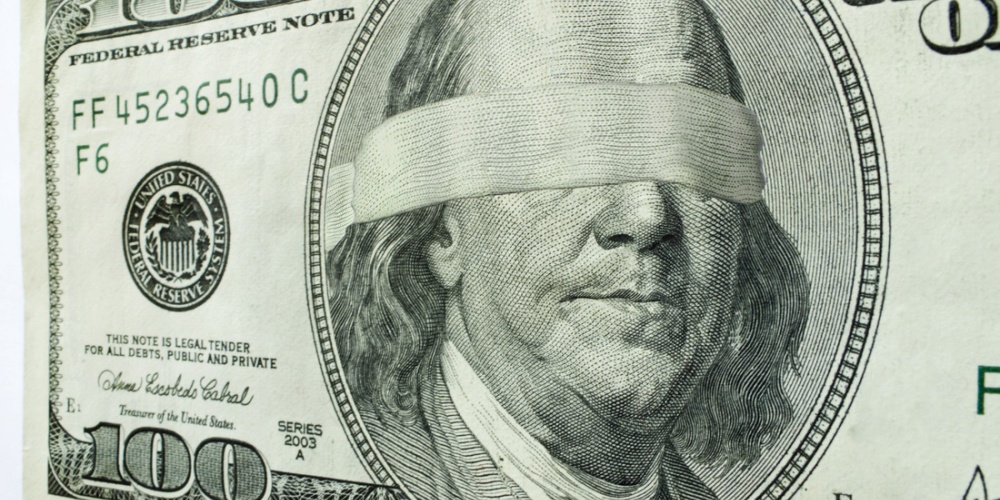
In our last post, we discussed the need to have an expert examine a bechor in order to declare that it has a mum, thus allowing its consumption and use by all. Even if the mum was most obvious, nonetheless the halacha still demanded an expert's opinion, fearful that the potential monetary gain would lead one to declare the not-obvious defect to be an obvious one.
Not only did we fear the farmer might, shall we say, fudge the truth for monetary gain; even a rabbinic expert cannot be fully trusted when there is money involved. “One who takes payment to examine bechorot, one may not slaughter based on his word” (Bechorot 28b). Rashi notes the rather obvious possibility that “perhaps because of the payment, he allowed the animal”. Not every rabbi will speak a mistruth for financial gain, but many will—if not consciously, then subconsciously. Noting these rare exceptions, the Mishna continues that if one, and only if one, is “an expert, i.e., pious, like Eela of Yavneh[1]” could one trust the ruling of one who took payment for issuing it.
Of course, a matir bechorot is only one of many religious functionaries who may be tempted by money. The Mishna continues, “One who takes a payment to issue a judgment, his judgments are null and void; a witness [who takes money to testify], his testimony is null and void” (Bechorot 29a). Interestingly, in these cases there is no mention of an exception for the likes of an Eela of Yavneh. Perhaps it is self-understood and there was no need to repeat this exception. Or perhaps the “piety exemption” is limited to the case of a bechor due to the fact that, for the most part, the declaration of a defect is an objective determination. Does this animal in fact have a defect? However, issuing a judicial decision is a most subjective matter, involving interpretation, application and assessment. In fact, The Supreme Court will only hear cases that require interpretation of the law.
With the determination of the status of a bechor subject to review by others, there is a built-in fear of getting caught and hence, we can trust one to issue an honest ruling—provided that one is known for their piety. However, when it comes to subjective matters, we have to be suspect even of the most pious. Money, as the Torah notes, can “blind the eyes of the wise and distort the words of the righteous” (Devarim 17:19). Thus the Torah prohibits taking payment from a litigant, even if the instructions are “to clear the innocent and convict the guilty.”
The Mishna has little need to teach that when a litigant pays a judge to sit in judgment—even with no nefarious motives—the ruling is invalid. Such payment, even if given only for the time and expertise involved, is little more than a legal bribe. Rather, the Mishna is referring to a case in which the money is paid from public funds, or perhaps from both litigants equally, and thus, there is no “side” that one would favour.
Nonetheless, the Mishna declares that that the rulings of those who are paid to judge are batel, meaningless and worthless! Why so?
The Gemara quotes the Biblical verse, “Behold, I have taught you statutes and ordinances” (Devarim 4:5), interpreting the verse to be teaching, “just as I [Moshe] taught for no payment, so, too, you [must teach] for no payment[2]”. Not satisfied with just this one source, the Gemara continues by quoting the next part of the verse: “As the Lord, my God, commanded me”, interpreting the verse as teaching, “Just as I [Moshe] taught for no payment, so, too, you [must teach] for no payment”. In other words, the verse repeats itself so that we have a double biblical prohibition of taking money for teaching Torah—and that is when there is no fear of bribery. It is dereliction of one’s duty if we choose not to follow in the path of Moshe Rabbeinu and emulate G-d, who graciously gave us the Torah for free[3].
The verse in sefer Devarim—chapter four, verse five—that twice teaches that Torah must be taught for free is immediately followed by the verse, “And you shall keep [them] and do [them], for that is your wisdom and your understanding in the eyes of the peoples, who will hear all these statutes and say, ‘This great nation is a wise and understanding people'". The Gemara in Masechet Shabbat (75a) derives from this verse the mitzvah to master astronomy[4], thereby gaining the admiration of the nations of the world. Yet read in the context of verse five, the Torah is teaching that the way to inspire and influence others is by emulating G-d. In the immediate context of the Torah, this emulation is manifest in our willingness to share great wisdom with others—at no cost. Read in its broader context, emulation of G-d means following in the traits of G-d: “Just as He is compassionate and merciful, so, too, should you be compassionate and merciful” (Shabbat 133b).
We are tasked with being the intellectual and moral leaders of, and inspiration to, the world. And we are to do so without expectation of payment.
Of course, from the times of the Gemara to today, much has changed; and this law is, by and large, ignored. Such will PG be the subject of our next post.
[1] This is another example of our Sages understanding knowledge as a means to character development. As the purpose of learning Torah is to make one a better person, one who is the greatest expert in the world but is ethically wanting is considered no expert at all. It was inconceivable to our Talmudic Sages that one who was not a model of integrity could be regarded as a Torah scholar.
[2] To the Sages of the Mishna, if it is forbidden to take money to teach Torah, it is surely prohibited to take money to issue a judicial ruling, or even to be a witness enabling the issuance of a proper ruling. Learning and teaching Torah is not meant to be some ivory tower endeavour where one rejoices in studying the Divine law. Torah in its purest form is meant to be applied to real life situations, and what greater application can there be than to issue a judicial ruling on real-life cases? The primacy of issuing a judicial ruling is demonstrated in the rabbinic teaching that “whoever issues a true judgment in truth, causes the Shechinah, the Divine presence, to dwell in Israel” (Sanhedrin 7a)
[3] The reason the Torah was given in the desert is to highlight this very point. The desert is no-man’s land open to all. So, too, Torah has a message for all—a message that would have been lost had it been given only in the Land of Israel.
[4] Today, we would likely replace astronomy with science, technology, engineering and mathematics (STEM).



